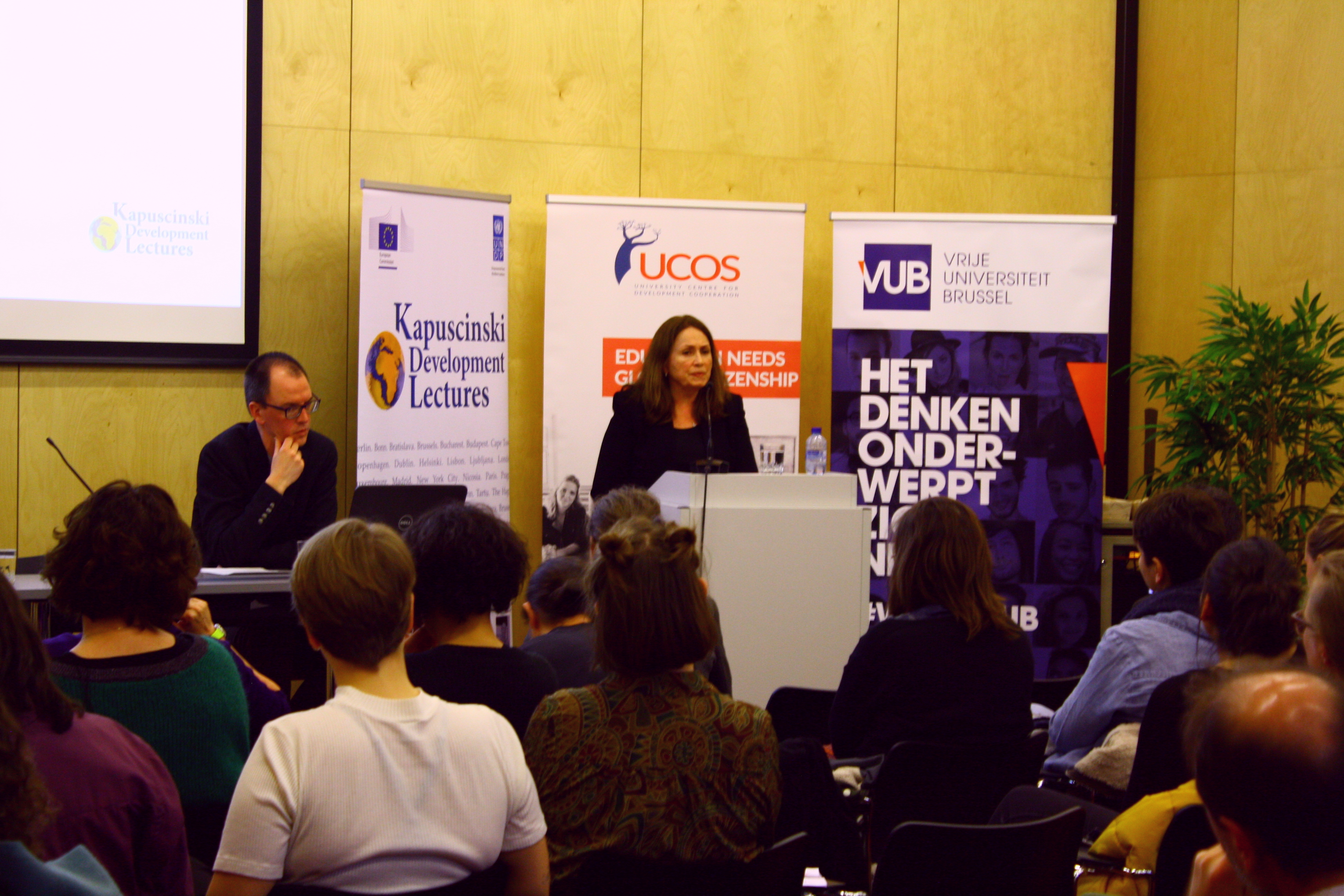‘A gender analyses is lacking in the design and implementation of most humanitarian refugee programs.’ So says Sarah Costa, speaker at our lecture about gender equality and reproductive health in migration contexts. Often no safe spaces for migrant women are established, leaving them vulnerable and exposed to violence.
Today, the humanitarian sector is confronted with many challenges. More than 69 million people are forced to leave their place of residence because of violence, persecution or violation of their human rights. In addition to this growing number of displaced people, the length of the displacement is increasing as well. Furthermore, an expanding number of people are fleeing to urban areas in search of employment opportunities and emergency services. On the other hand, wealthy nations are becoming more and more isolationist and borders are closing. Humanitarian resources are thus disproportionately overstretched and underfunded.
Against the backdrop of all these challenges, Sarah Costa stressed the particular risks and vulnerabilities of women and girls. At least 25% of refugee women are of reproductive age, 14 % of these women are pregnant, and 15 % of these pregnancies will lead to life threatening complications. Nonetheless, a gender analyses is lacking in the design and implementation of most humanitarian programs. Costa pointed to the importance of target group-oriented facilities for women and men. For example, migrant women are afraid to use latrines in refugee camps. No safe spaces are established, leaving women vulnerable and exposed to violence. Moreover, humanitarian programs should not solely focus on supplying reproductive health services, working on women’s social and economic empowerment in the humanitarian field is at least as important.
Despite these intersectional vulnerabilities of forced migrants and refugee women, transformative change is achievable. In her lecture, Sarah Costa listed eight strategies that can contribute to transformative and positive practices:
- Costa referred to a necessary shift in our discourses about migrants and practices towards them to adapt to the changing experiences of forced migrants. Displaced people are not merely victims in need of assistance and humanitarian care. Rather, they must be regarded as survivors with strengths, skills and capacities that can be tapped and supported.
- The social and political field should stop treating the so-called ‘migration crisis’ as short-term problem, instead long-term programs must be supported. Sustainable capacity building programs will stimulate local economies.
- Humanitarian actors must involve women and support women’s participation. Migrant women can offer unique insights in limitations and opportunities of existing humanitarian programs.
- Local women’s organisations can play a powerful role in developing accurate services for women. Their contribution is too often ignored or sidelined by international aid organisations. Therefore, allocation funds need to strengthen their capacity and leadership.
- Along with local women, local capacity must be supported. Favourable framework guidelines have been set by humanitarian organisations, but implementation of these guidelines remains poor.
- The humanitarian and development actors must improve their partnership relations. Although organisations in both fields share many common goals, they remain often separated.
- It is necessary to focus on empirical data demonstrating the impact of a gendered-based approach. Without data it is impossible to demonstrate and evaluate the advantageous results of gender-based programs.
- Accountability of humanitarian actors should be increased by donors with regards to the integration of gender perspectives in all aspects of their work. Local organizations again can play an essential role in evaluating whether their needs are being answered.
In a panel discussion after Sara Costa’s lecture, Ines Keygnaert (Assistant professor in sexual and reproductive health an Ghent University) talked about the sexual and reproductive health context for forced migrants in Belgium. In her contribution, she emphasized that sexual and gender-based violence continues when migrants arrive in ‘host’ countries. Keygnaert pointed f.e. to the maternal morbidity problems women face. European rules about access to safe delivery for all migrant women is being turned back in more and more countries. Childbirth is no longer regarded as an urgent medical intervention. More generally, she underlined the importance of providing assistance regardless of legal status. This principle lay at the basis of the recently started sexual assault care centre in Belgium.
In their concluding remarks, Keygnaert and Costa stressed that both the accountability and gender-sensitivity of humanitarian organisations have to be strengthened to protect the reproductive health of refugees and migrants.
On the 21st of February 2019 toghether with the Kapuscinski Development Lectures, UCOS organised a lecture with Sarah Costa, executive director of the Women’s Refugee Commission. The lecture was also the launch of UCOS’s annual topic on ‘Sexual and Reproductive Health and Rights (SRHR)’ of its project CHanGE. CHanGE (Campaign on sexual Health and Gender Equality) offers young people a platform to campaign on gender equality and SRHR.
This event was supported by:
This post is also available in: NL




